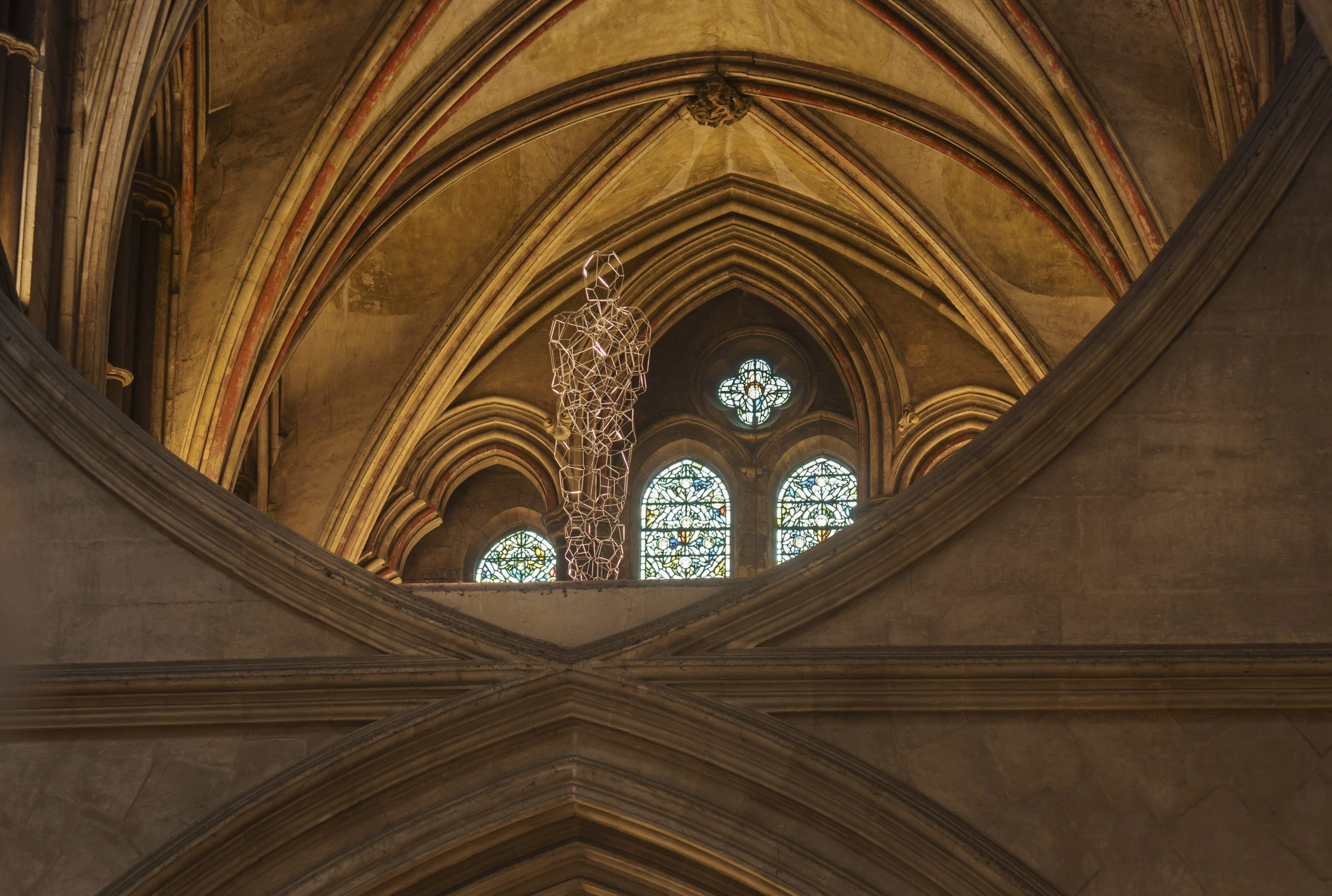Striving, blessed – and wounded?

A sermon by The Very Revd Nicholas Papadopulos, Dean of Salisbury
Sunday 10 July 2022, the Fourth Sunday after Trinity
‘You shall no longer be called Jacob, but Israel, for you have striven with God and with humans, and have prevailed’
Those words capture the moment at which the nation of Israel and the notion of Israel are brought to birth. Jacob’s descendants, with whom God declares an eternal covenant, receive their name from God’s very mouth.
Jacob wrestles with a stranger. Now Israel will strive with God and with humans. This will be seen in the long history of their faithfulness and their faithlessness. Israel will flourish as a kingdom and will be driven into exile. Israel will unite around judges and monarchs and will submit to occupation. Israel will worship in God’s temple and will build hilltop altars to foreign gods.
Jacob is blessed by the stranger. Now Israel will be blessed by God. This too will be seen in the long history of their faithfulness and their faithlessness. They are given territory, riches, and the respect of other nations.
But Jacob is also struck by the stranger, and if we read one further verse, verse 31 of the thirty-second chapter of Genesis, we read this: ‘The sun rose upon Jacob as he passed Penuel, limping because of his hip’.
Israel strives with God, and is blessed by God, but Israel is also wounded by his encounter with God. When Jacob leaves the ford of the Jabbok he carries with him a lasting reminder: he limps.
Striving, blessed, and yet wounded. You and I count ourselves among the descendants of Jacob. We believe ourselves to be inheritors of the promise made to him. We might recognize ourselves as striving with God – in prayer and Bible study, in Church life and in our relationships in the world. We might recognize ourselves as blessed by God – seeing the fruits of his Spirit at work in our lives and in others’ lives. But – wounded by the encounter? Does Jacob’s slow, painful, halting walk away from the ford bear any meaning for us?
The Pharisees and scribes ask Jesus about the cleanliness codes that are a part of Jewish life: and in his exchange with them we glimpse a common thread that runs through all religions. For cleanliness codes – the washing of hands, and the washing of cups, pots, and bronze kettles – have one object only: that of closing the perceived gap between God and humankind. Every religion has its rituals, and all share the conviction that by their performance the distance between heaven and earth is somehow narrowed, and that by their performance we are brought closer to the holiness which we lack.
And here perhaps is the wound we bear. We strive with God; we are blessed by God; yet in the dark hours of the night we fundamentally believe ourselves separated from, cut off from, alienated from God, from the One who gives us life. Much of our religious practice is intended to bring us back to God’s attention and God’s concern; it is intended to placate God or appease God or impress God.
In this we are like Jacob, who is approaching a reunion with his brother Esau that he has good reason to dread. He has cheated Esau of his birthright and of their father’s blessing. Esau has every reason to hate him, and Jacob fears for his life. So as he makes his way towards the rendezvous he places lavish gifts between him and his estranged brother. Esau will see the goats and camels, and cows and donkeys before he ever sees Jacob. Perhaps these will soothe him and calm his wrath.
So we approach God, the wound of our supposed estrangement ever with us, causing us to limp as did Jacob, piling up the good works and pleasing practices that we hope will make us acceptable to him. But it’s a supposed estrangement.
“Esau ran to meet Jacob,” writes the author of Genesis at the beginning of chapter 33. “Esau ran to meet Jacob and fell on his neck, and kissed him, and they wept”. As the father of the prodigal son will run from his house to meet the returning wanderer so Esau runs to meet his double-crossing brother, and so God cannot be stopped from embracing us.
The wound is of our imagining. Let us pray.




